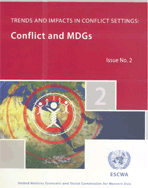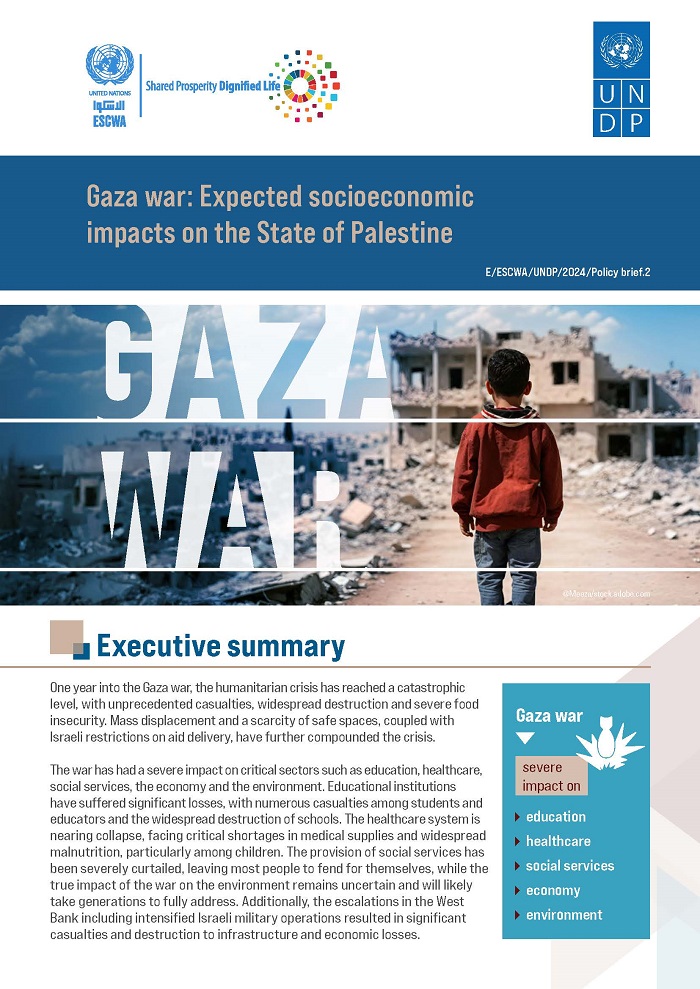
ESCWA Publication: E/ESCWA/ECRI/2011/2
Country: Arab region, Republic of Iraq, Lebanese Republic, State of Palestine, Republic of Sudan, Republic of Yemen
Publication Type: Reports & studies
Cluster: Governance and Conflict Prevention
Focus Area: Governance & enabling environment, Resilient development & conflict prevention
Initiatives: Supporting Least Developed Countries
SDGs: Goal 16: Peace, Justice and Strong Institutions
Keywords: Conflict, Development, Governance, Peacebuilding, Post-conflict reconstruction, Armed conflicts, Costs, Civil war, National budgets, Economic aspects, Statistical data
Trends and Impacts in Conflict Settings: Conflict and MDGs, Issue No. 2
January 2011
One additional year of civil war in an ESCWA member country causes a decline in per-capita GDP of about 17.5 per cent, which is marginally higher than in other countries. It also causes development indicators to return to the levels of 5 to 10 years ago. Most of the adverse effect of civil and inter-State wars on income is transmitted through weaker institutions, international trade disruption, and decline in investment and physical capital accumulation. Those are some of the conclusions that have been reached by this study.
This study explores the relationship between conflict and the Millennium Development Goals (MDGs), reviews the status of MDG attainment in conflict-affected countries in the ESCWA region, namely Iraq, Lebanon, Palestine, the Sudan and Yemen, and assesses the development costs of conflict. The study presents arguments for “pro-MDG” budgets in conflict or fragile countries despite significant financial constraints and competing interests, including the need to ensure security. It suggests that with adequate political willpower and institutional and economic capacities, budgetary realignments in favour of developmental goals can be undertaken even with no rise in expenditures.
Related content
Governance & enabling environment
, Resilient development & conflict prevention
,
One additional year of civil war in an ESCWA member country causes a decline in per-capita GDP of about 17.5 per cent, which is marginally higher than in other countries. It also causes development indicators to return to the levels of 5 to 10 years ago. Most of the adverse effect of civil and inter-State wars on income is transmitted through weaker institutions, international trade disruption, and decline in investment and physical capital accumulation. Those are some of the conclusions that have been reached by this study.
This study explores the relationship between conflict and the Millennium Development Goals (MDGs), reviews the status of MDG attainment in conflict-affected countries in the ESCWA region, namely Iraq, Lebanon, Palestine, the Sudan and Yemen, and assesses the development costs of conflict. The study presents arguments for “pro-MDG” budgets in conflict or fragile countries despite significant financial constraints and competing interests, including the need to ensure security. It suggests that with adequate political willpower and institutional and economic capacities, budgetary realignments in favour of developmental goals can be undertaken even with no rise in expenditures.



